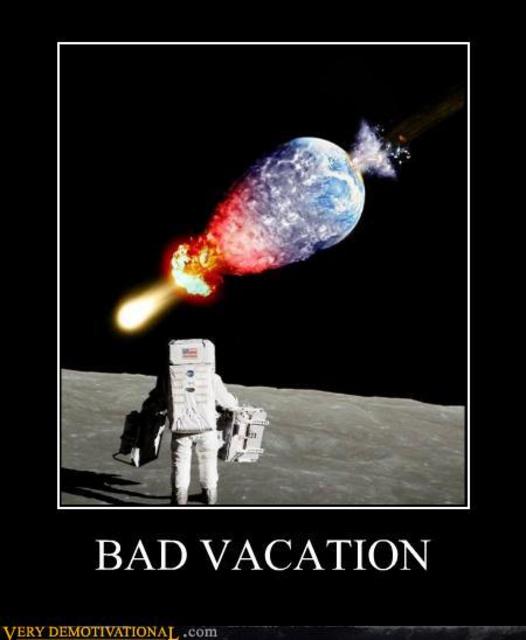Welcome to DU!
The truly grassroots left-of-center political community where regular people, not algorithms, drive the discussions and set the standards.
Join the community:
Create a free account
Support DU (and get rid of ads!):
Become a Star Member
Latest Breaking News
General Discussion
The DU Lounge
All Forums
Issue Forums
Culture Forums
Alliance Forums
Region Forums
Support Forums
Help & Search
Science
Related: About this forumNASA Asteroid Watch. Asteroid 2010FR will safely pass our planet on Sept 6
NASA Asteroid Watch..Our #PlanetaryDefense experts are not worried about asteroid 2010 FR and you shouldn’t be either because it has zero chance of hitting Earth. 🌎 It will safely pass by our planet on Sept. 6 more than 4.6 million miles away—that’s more than 19 times the distance of our Moon!
12:30 PM · Sep 1, 2020
(more at link)
12:30 PM · Sep 1, 2020
https://www.google.com/url?sa=t&source=web&rct=j&url=https://www.indiatoday.in/amp/science/story/asteroid-twice-size-egypt-pyramid-zip-past-earth-sunday-september-6-nasa-explainer-1718921-2020-09-05&ved=2ahUKEwjN_bCv1dPrAhUDnZ4KHeefBXQQFjAFegQIBBAB&usg=AOvVaw3IZ7W8HfShM4PaEtQf5QOq&cf=1
InfoView thread info, including edit history
TrashPut this thread in your Trash Can (My DU » Trash Can)
BookmarkAdd this thread to your Bookmarks (My DU » Bookmarks)
4 replies, 1070 views
ShareGet links to this post and/or share on social media
AlertAlert this post for a rule violation
PowersThere are no powers you can use on this post
EditCannot edit other people's posts
ReplyReply to this post
EditCannot edit other people's posts
Rec (1)
ReplyReply to this post
4 replies
 = new reply since forum marked as read
Highlight:
NoneDon't highlight anything
5 newestHighlight 5 most recent replies
= new reply since forum marked as read
Highlight:
NoneDon't highlight anything
5 newestHighlight 5 most recent replies
NASA Asteroid Watch. Asteroid 2010FR will safely pass our planet on Sept 6 (Original Post)
RestoreAmerica2020
Sep 2020
OP
Srkdqltr
(6,313 posts)1. Of course it will. What else could happen.
PoindexterOglethorpe
(25,878 posts)2. This link may be helpful.
https://cneos.jpl.nasa.gov/sentry/
It gives the actual odds of a given known asteroid impacting the earth. You need to look at the fourth column, the one labelled Impact Probability (Cumulative). Click on the number, which is a mathematical expression most of us don't understand. It then is translated into a number we do understand.
Look at a few of them. Do you see how incredibly low the chance of an asteroid impact happening? While such a thing certainly can and has happened in the past, even inter solar system distances are extremely large.
Here's another example. As you may possibly know, our galaxy, Milky Way, which contains about 300 billion stars, is on a collision course with Andromeda, which has about a trillion stars. Brace yourself. We're going to crash together in about four and a half billion years. Woah! Recently I asked My Son The Astronomer, when that happens, how many stars will actually crash into each other? He said, "Well, we're not entirely sure, but probably no more than ten." Out of 1.3 trillion stars, only ten will collide. Wow. That tells you more than anything else just how vast interstellar distances are. He did add that quite a few more (although he didn't give me any numbers) will interact gravitationally, but I'm guessing most of us don't need to be too concerned about that.
It gives the actual odds of a given known asteroid impacting the earth. You need to look at the fourth column, the one labelled Impact Probability (Cumulative). Click on the number, which is a mathematical expression most of us don't understand. It then is translated into a number we do understand.
Look at a few of them. Do you see how incredibly low the chance of an asteroid impact happening? While such a thing certainly can and has happened in the past, even inter solar system distances are extremely large.
Here's another example. As you may possibly know, our galaxy, Milky Way, which contains about 300 billion stars, is on a collision course with Andromeda, which has about a trillion stars. Brace yourself. We're going to crash together in about four and a half billion years. Woah! Recently I asked My Son The Astronomer, when that happens, how many stars will actually crash into each other? He said, "Well, we're not entirely sure, but probably no more than ten." Out of 1.3 trillion stars, only ten will collide. Wow. That tells you more than anything else just how vast interstellar distances are. He did add that quite a few more (although he didn't give me any numbers) will interact gravitationally, but I'm guessing most of us don't need to be too concerned about that.
keithbvadu2
(36,870 posts)3. OOPS!

krispos42
(49,445 posts)4. I'm waiting for a tiny black hole...
... moving at about .01c to enter our system from above our orbital plane and smash into us with only a few hours warning. Just because it's 2020.